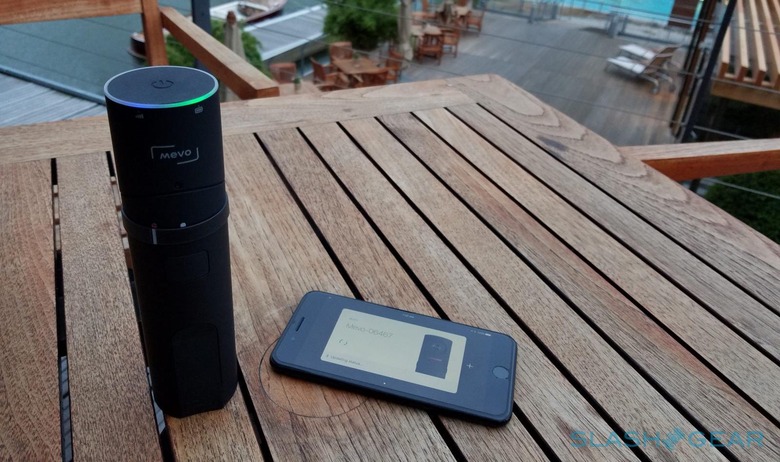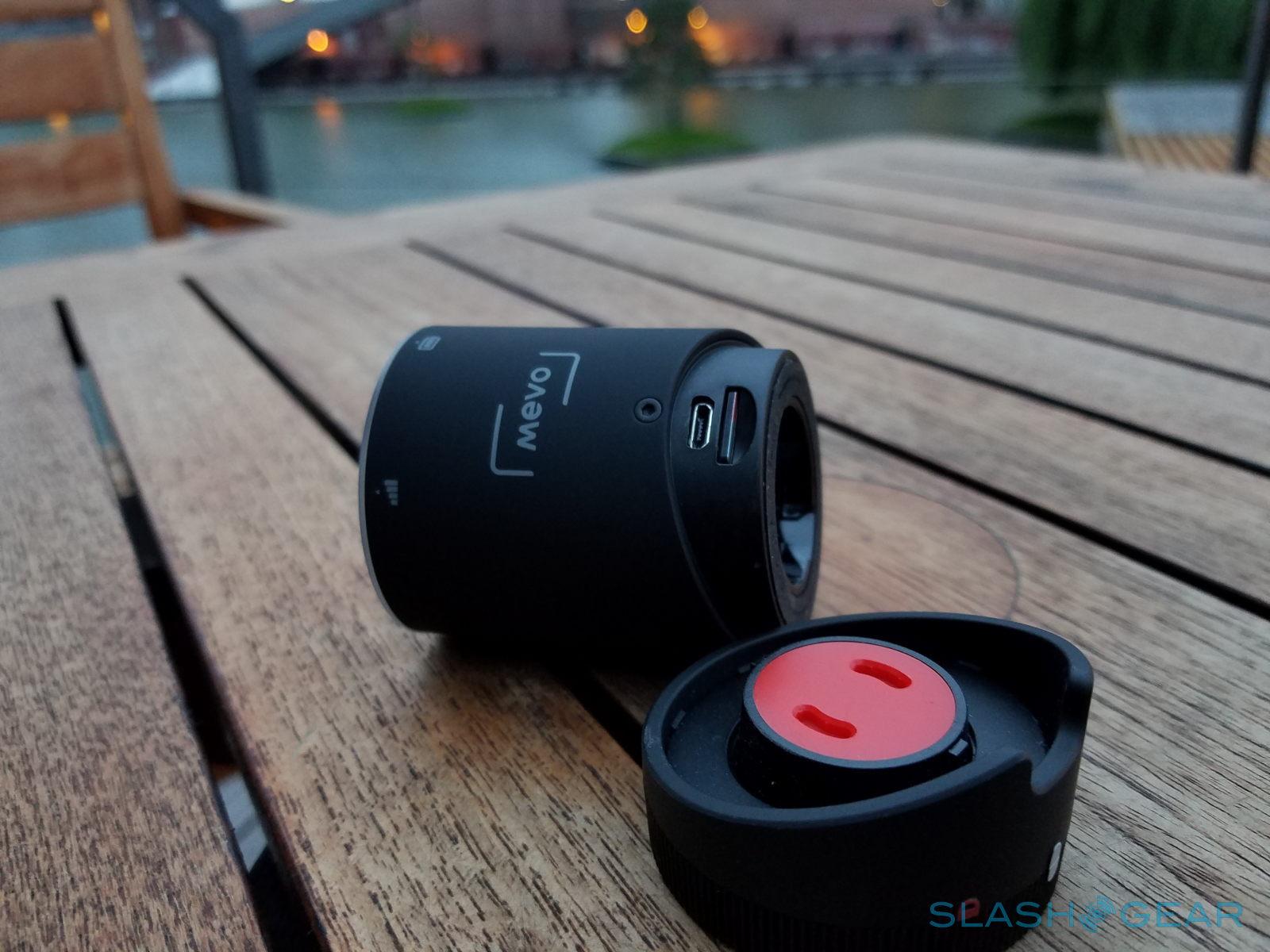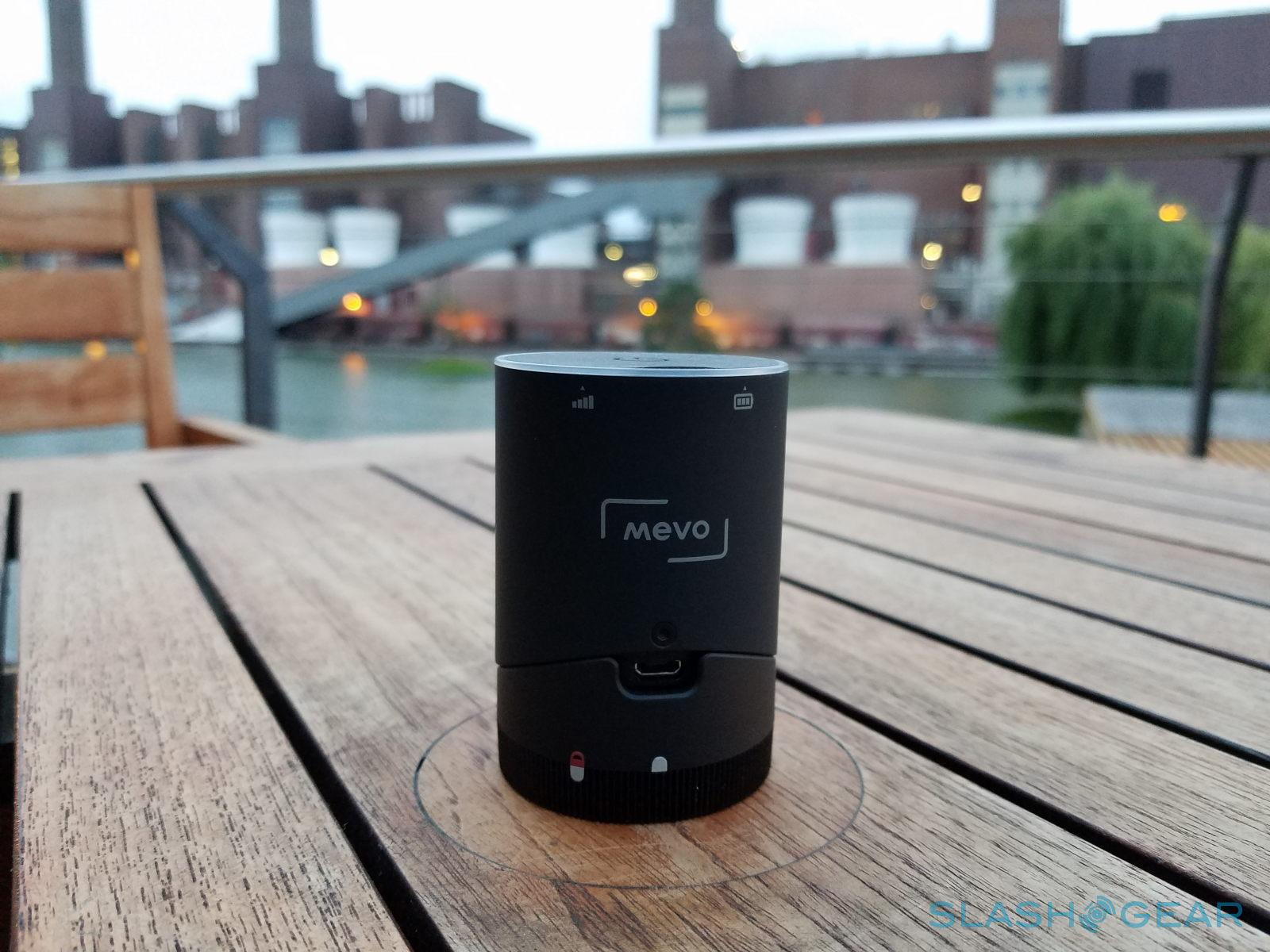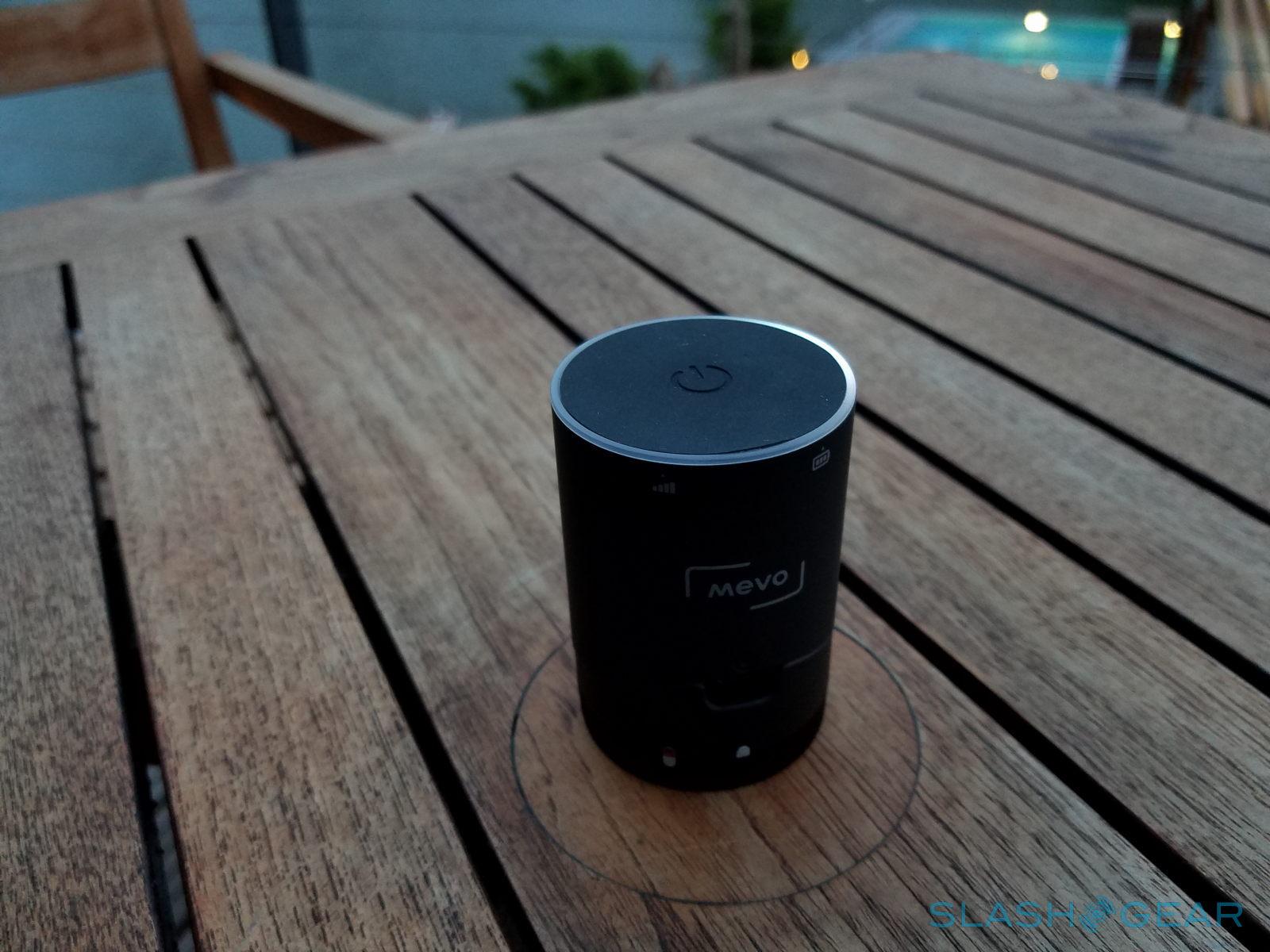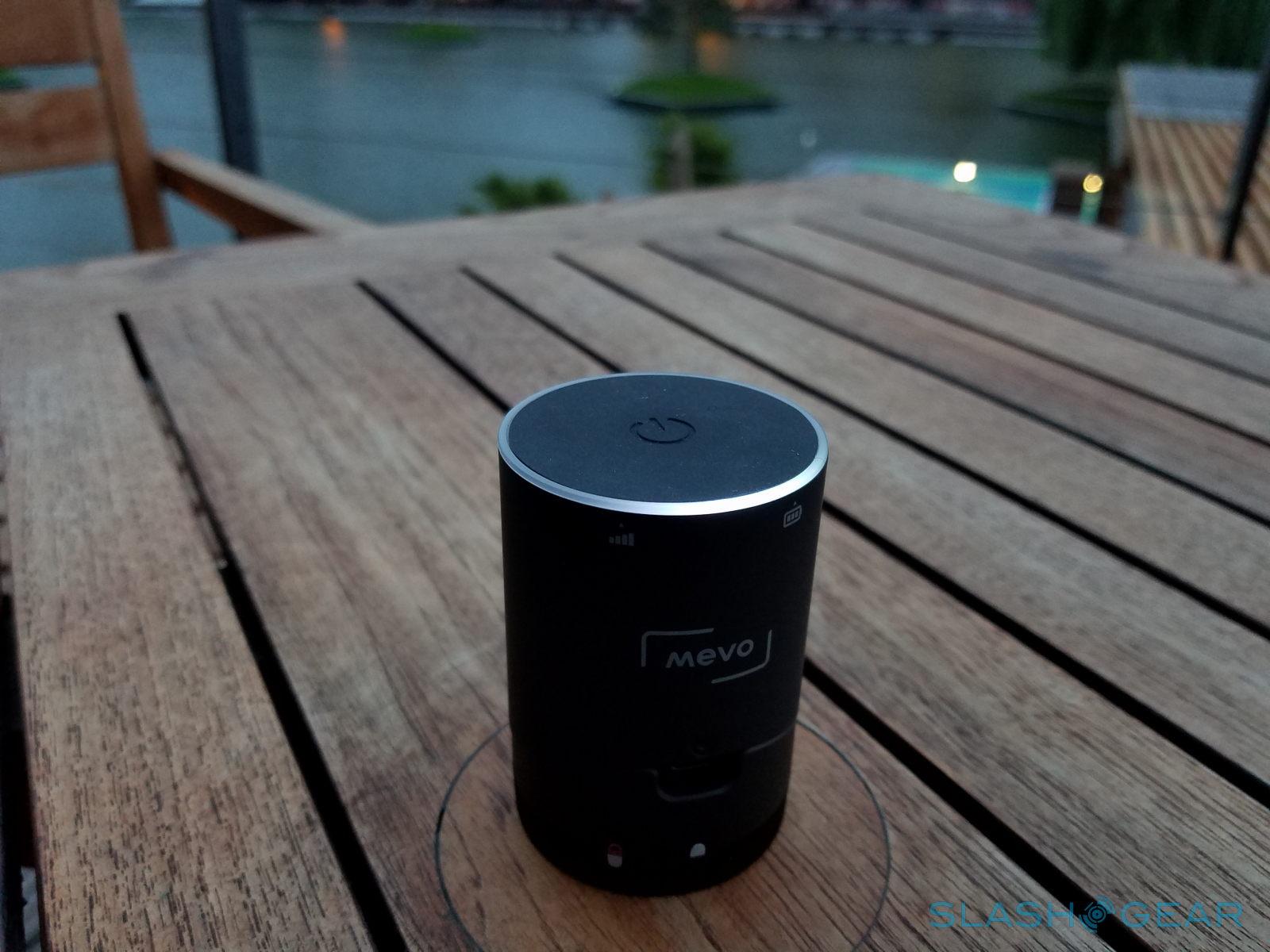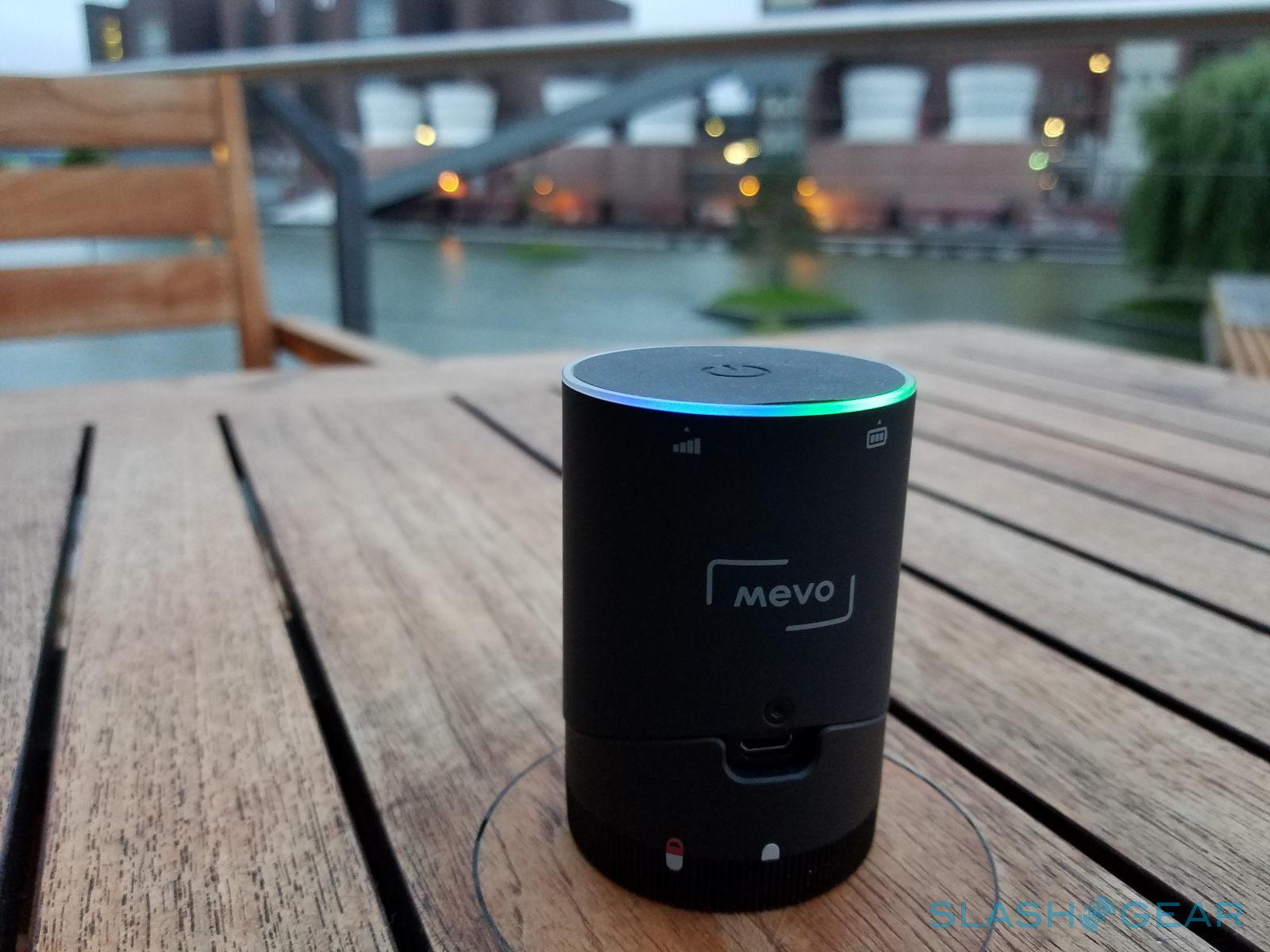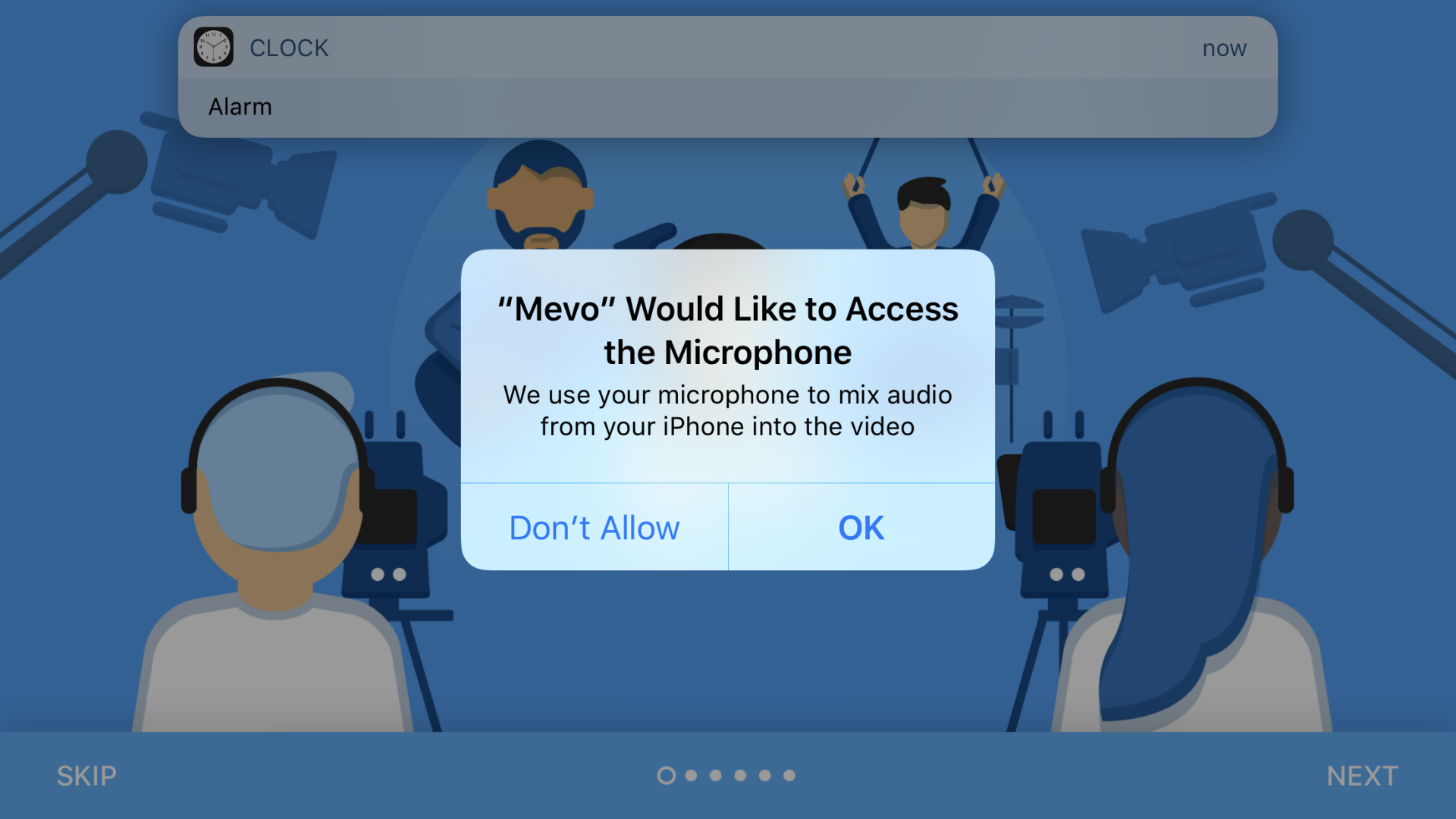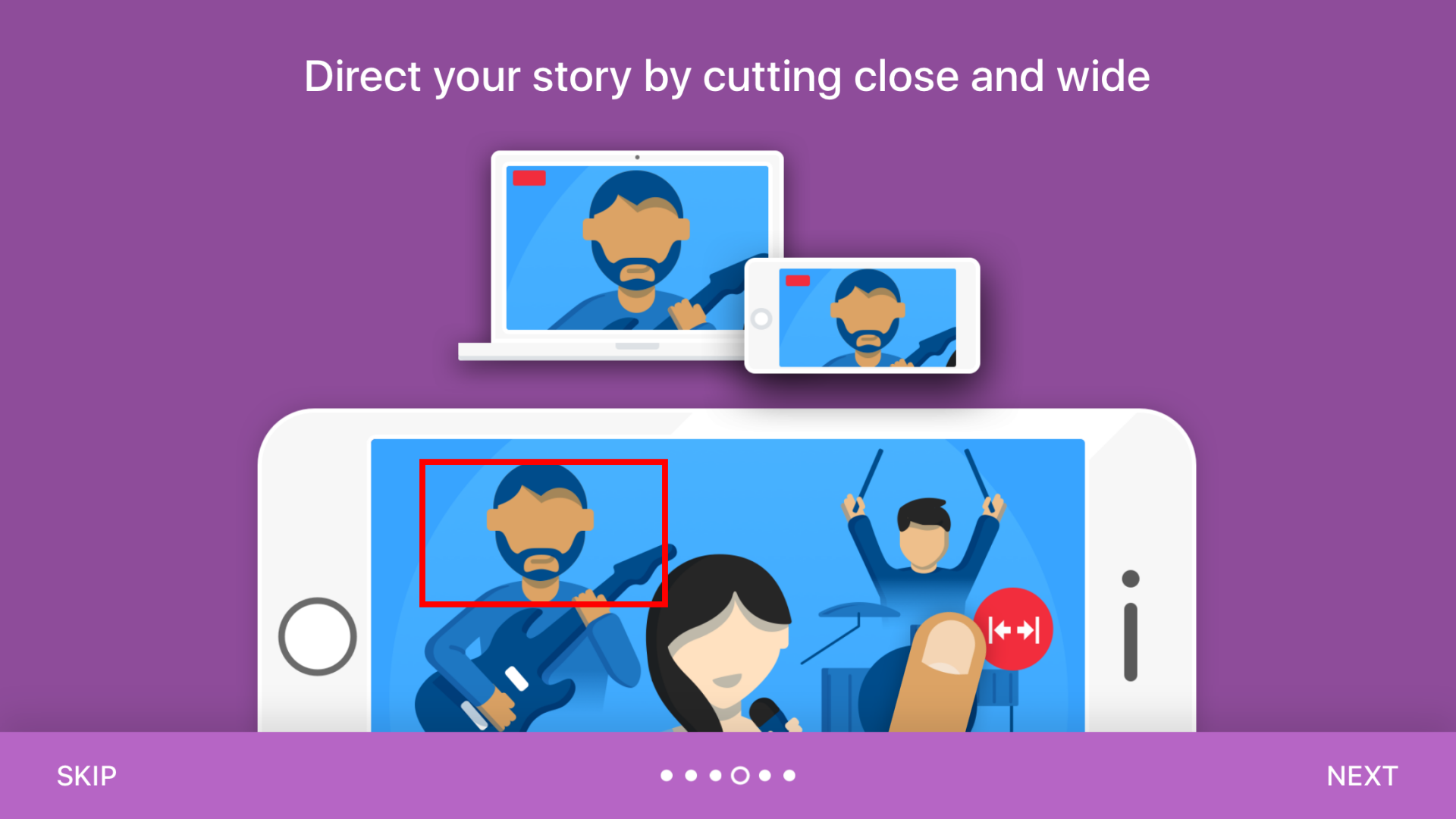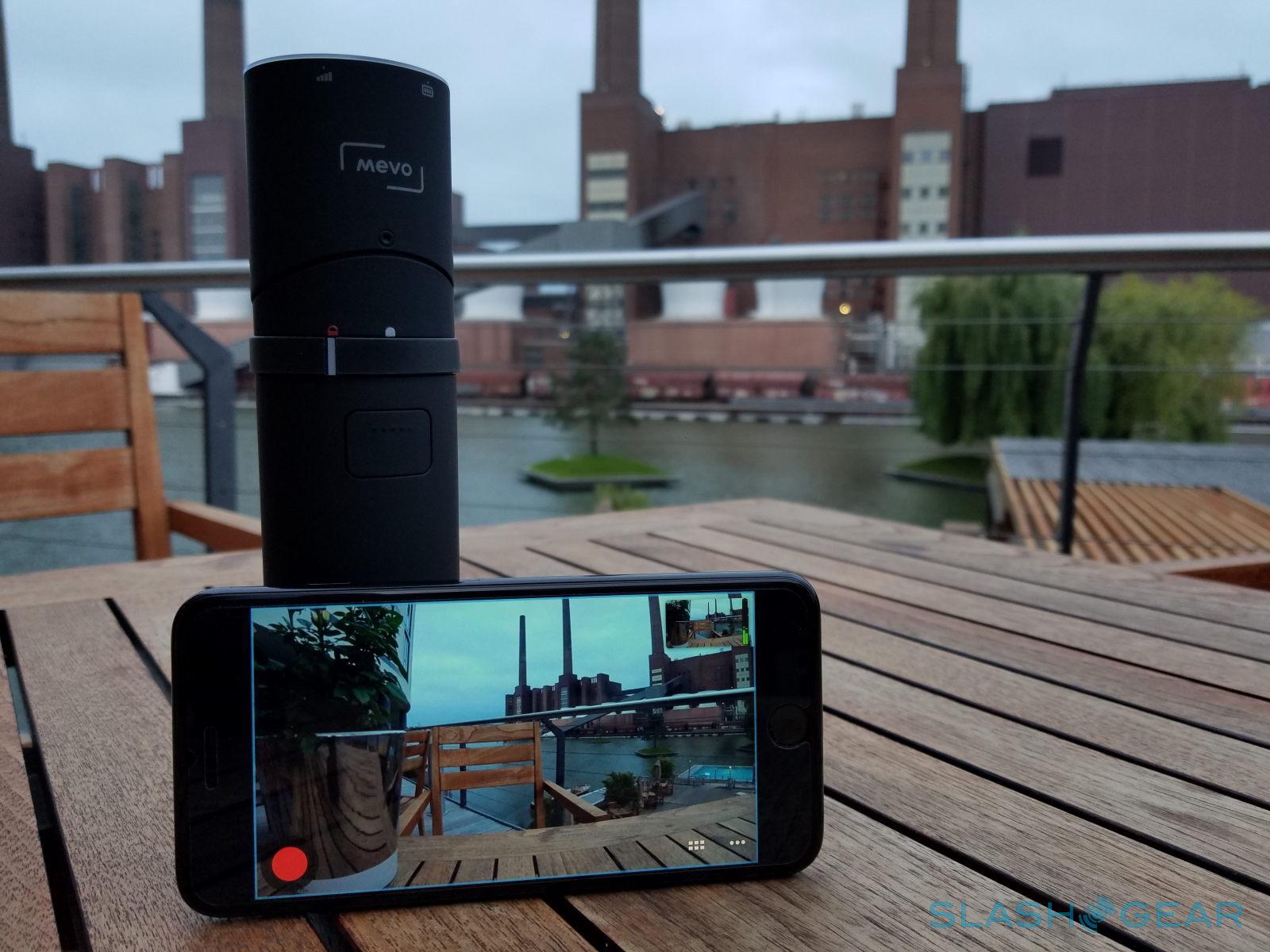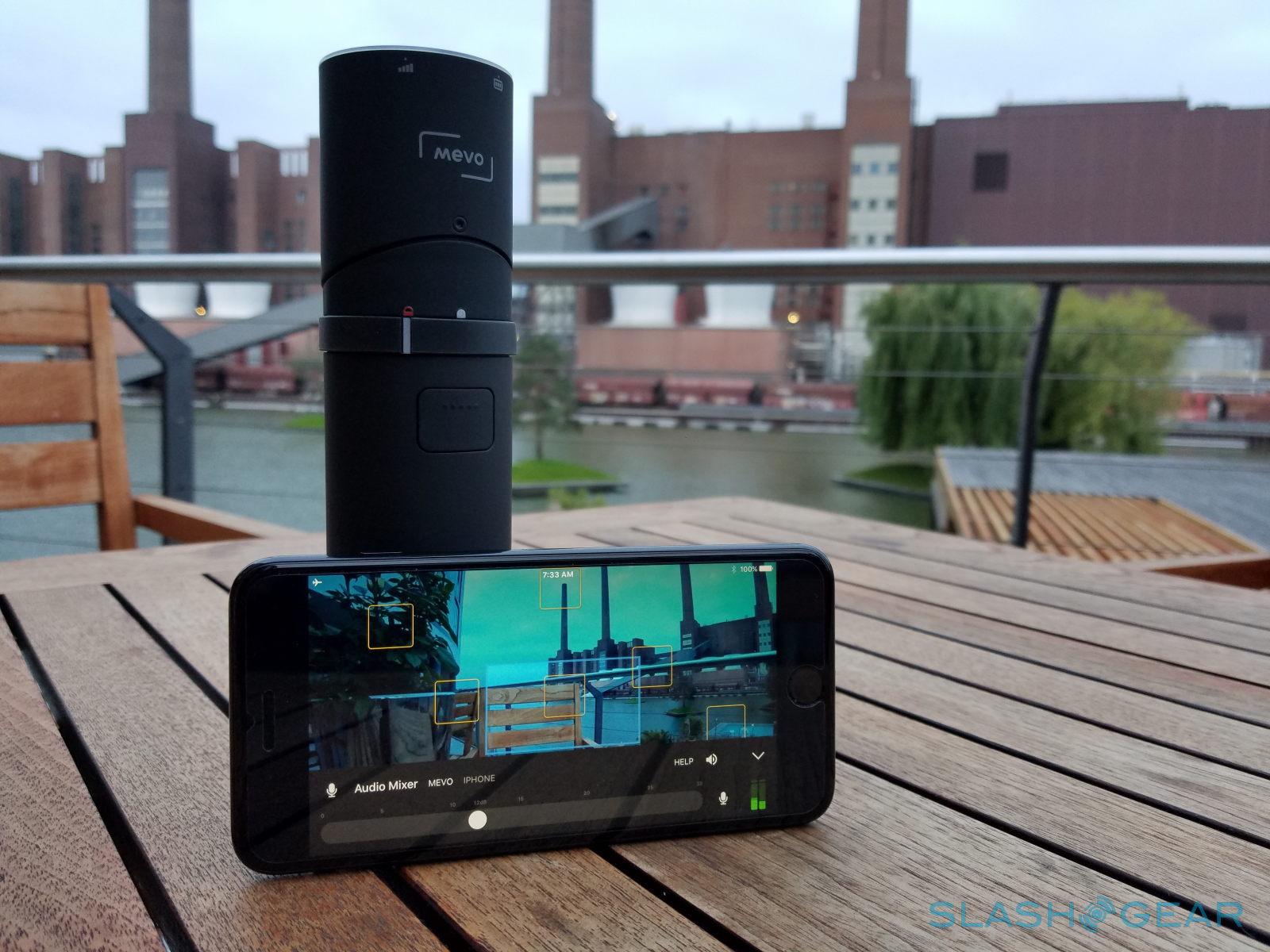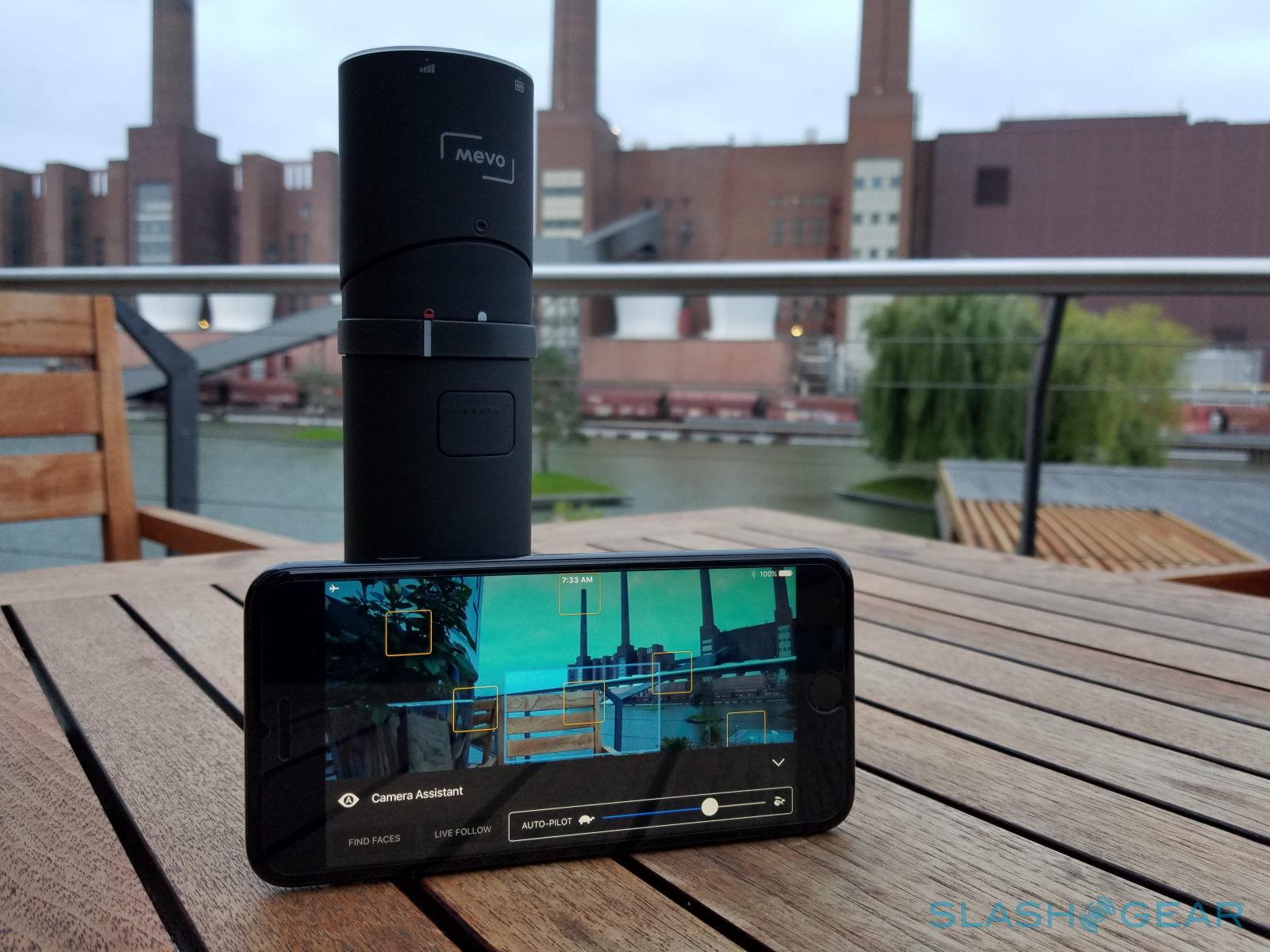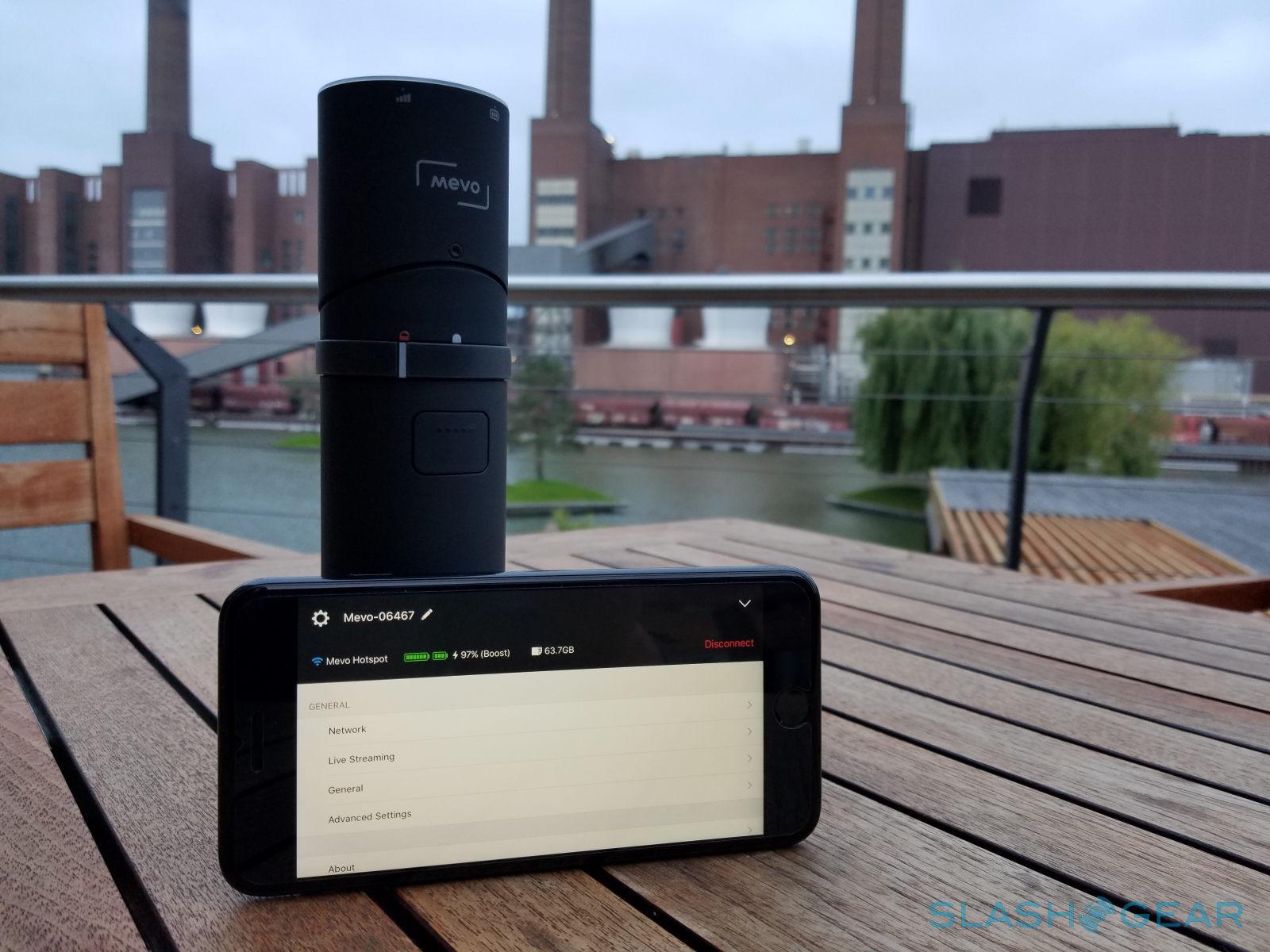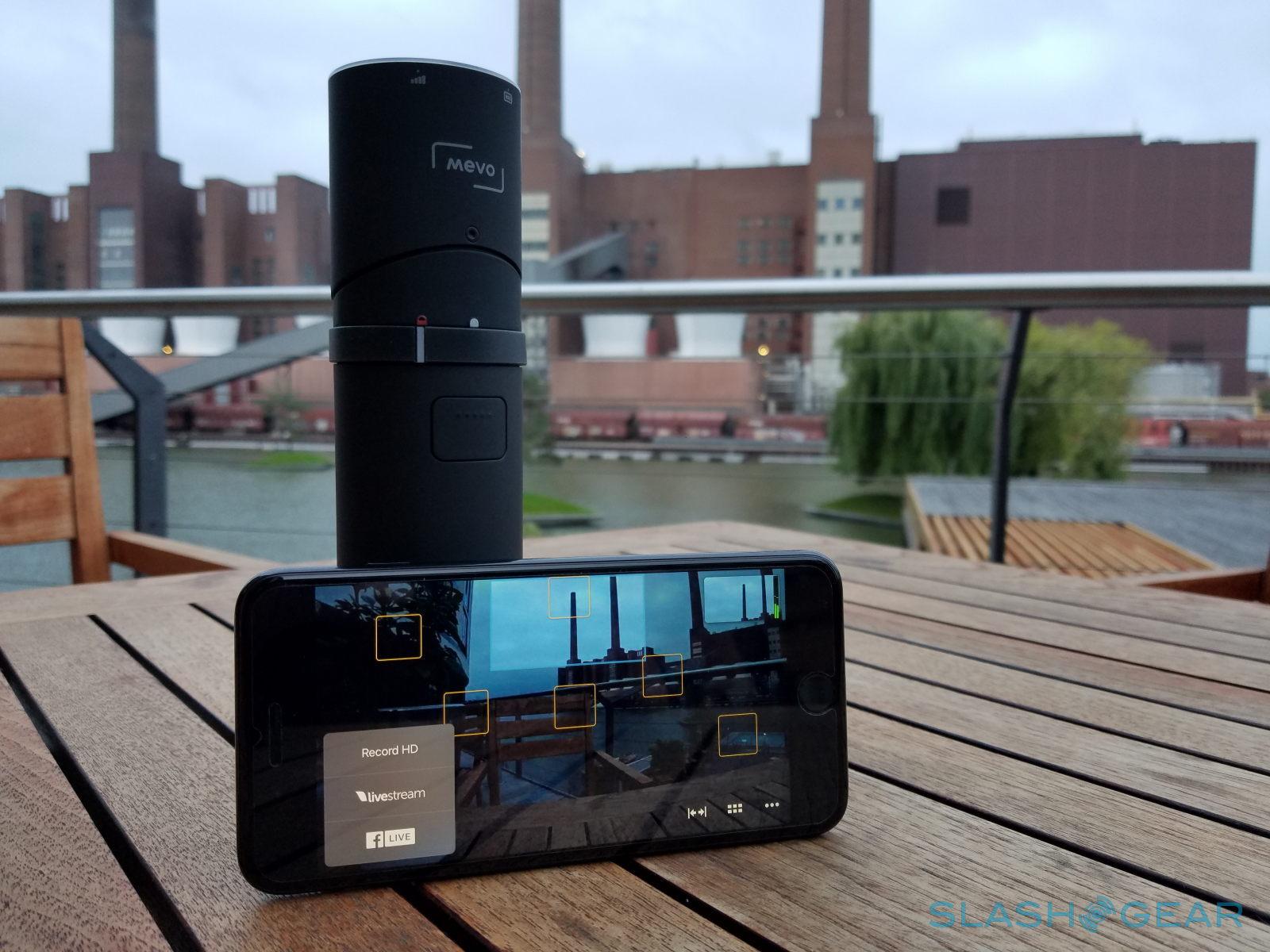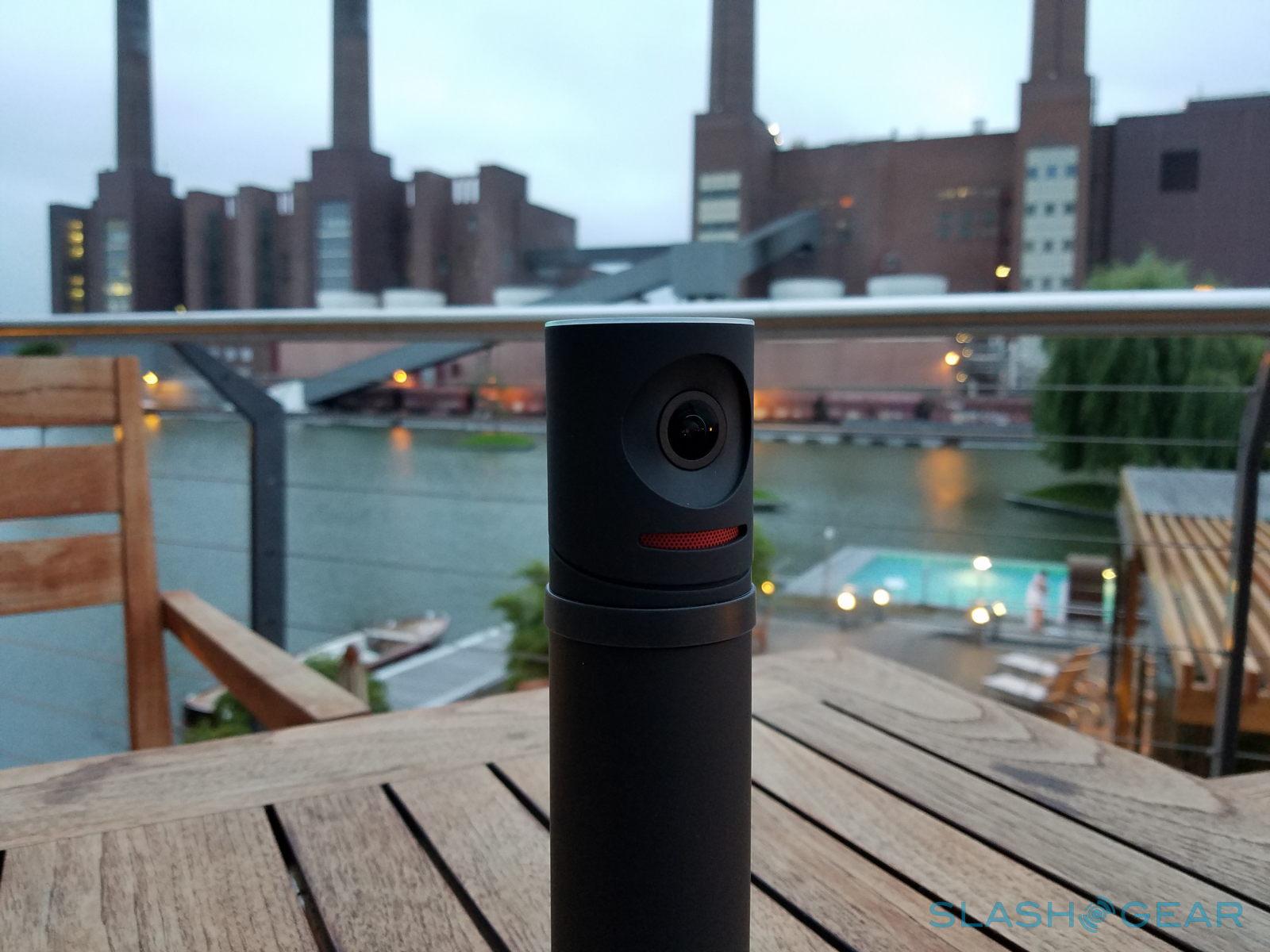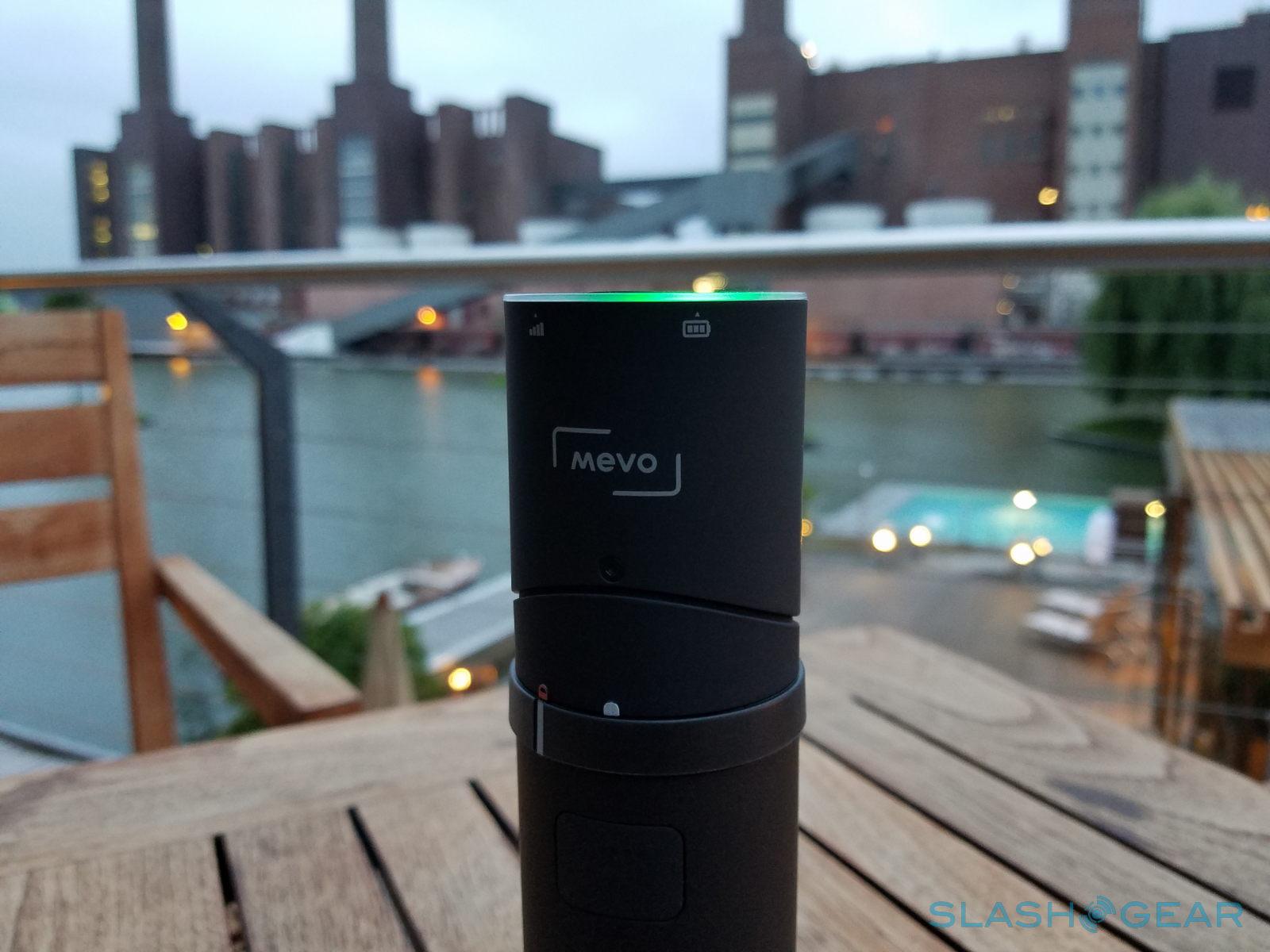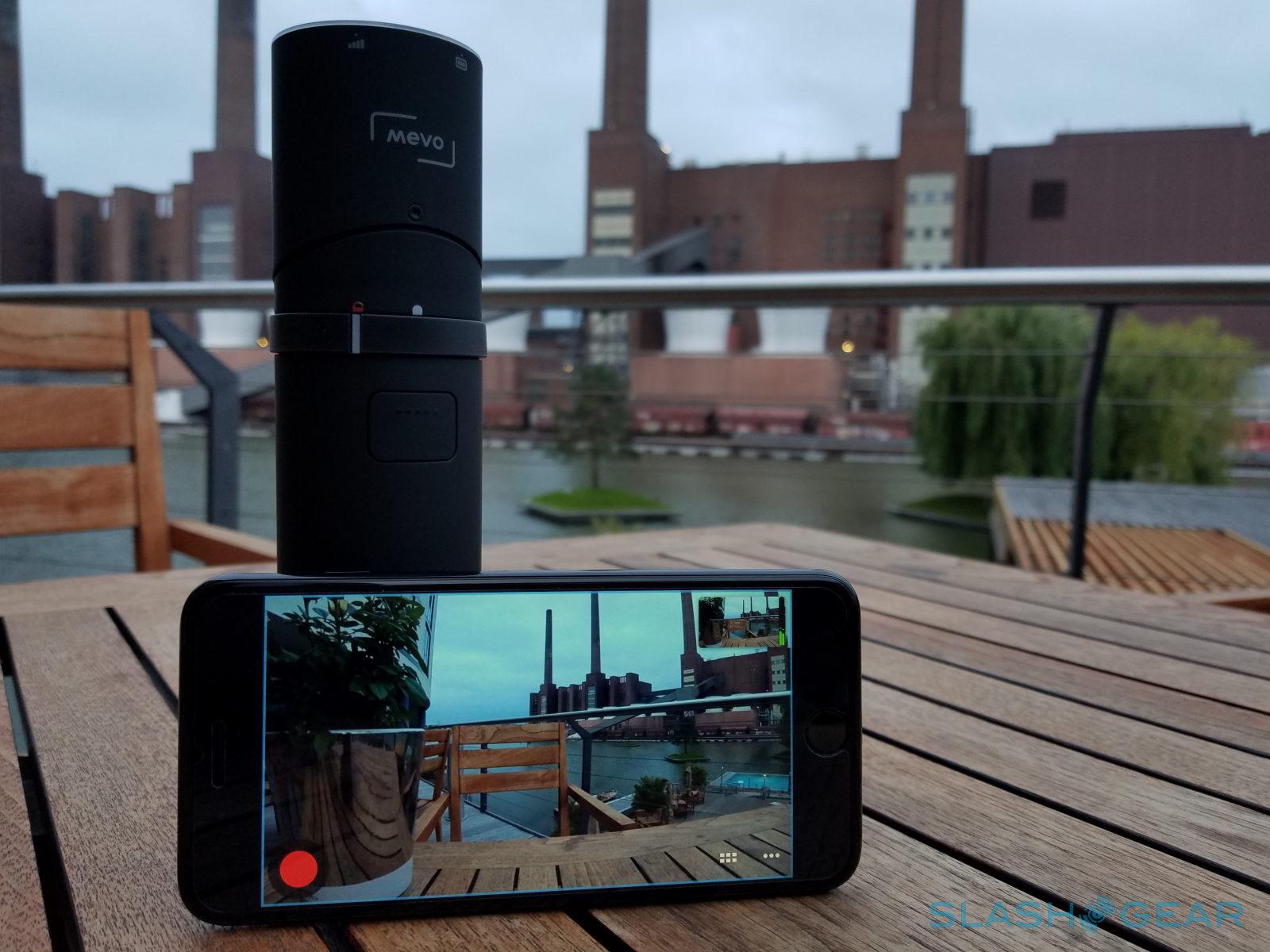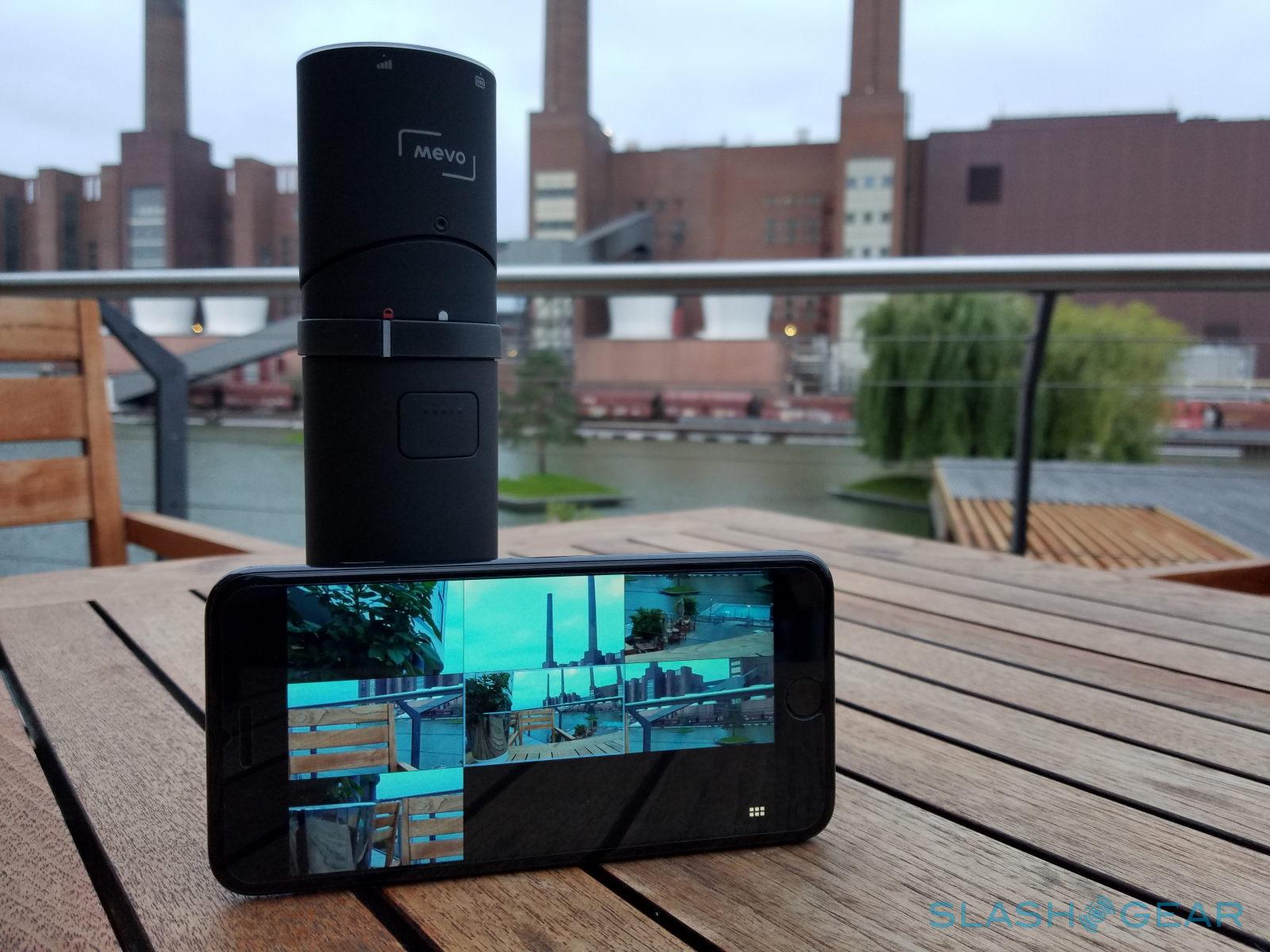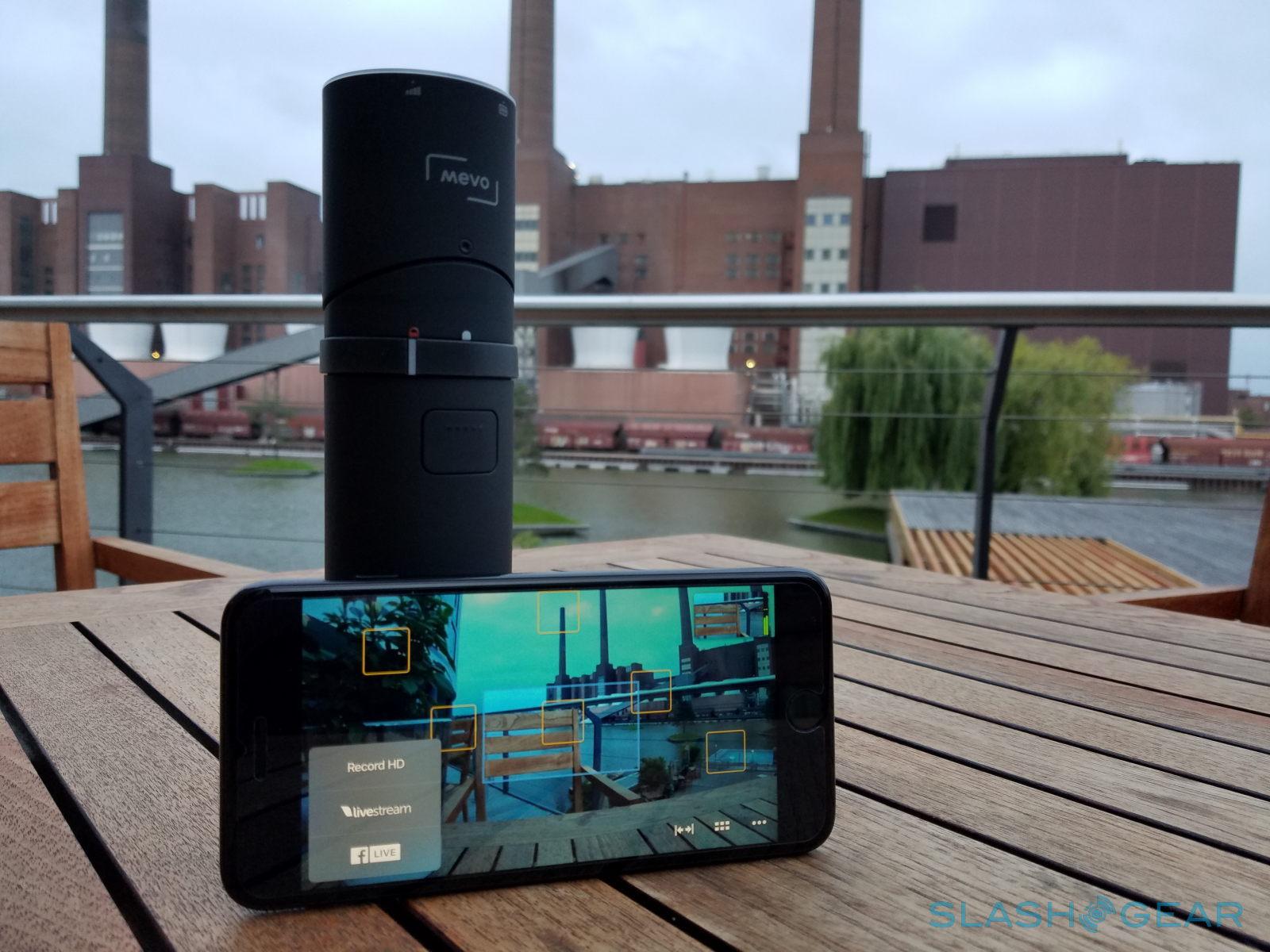Mevo By Livestream Camera Review
- Real-time editing of streamed or recorded videos
- Intelligent automatic editing algorithm
- Decent video and audio recording
- Simple, lightweight design
- Auto-editing can be a bit too aggressive
- 1-hour built-in battery life
A year or so ago, live streaming events was more of a fad that only the very tech savvy or very social user would do. As we near the close of 2016, however, we look back at how the Internet has been flooded by this type of "democratized" broadcasting, ranging from sports and music events, to political debates, to witnessing crimes as they happen. But while live streaming has mostly been associated with smartphones, there is always a need for more professional, but still accessible, recording devices. That's where the Mevo camera from Livestream comes in, developed by the company whose very name is synonymous to its purpose.
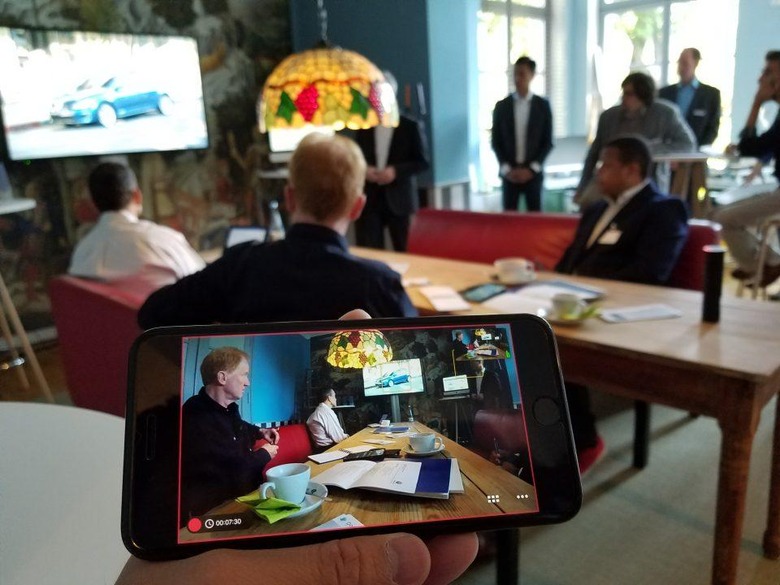
Design
Canisters are the new black. From the Amazon Echo to Google's OnHub, cylindrical devices are in these days. The shape exudes simplicity, elegance, and space efficiency, all at once. And for devices with speakers, 360-degree reach. While the Mevo doesn't really take advantage of the latter, it looks great all the same.
By no means is the Mevo camera a large device. It may even be dwarfed by its companion iPhone. measuring only 2 inches on it diameter and standing only 2.5 inches high, the Mevo is design to be petite, lightweight, portable, and almost inconspicuous. And while you can hold it in your hand, it really isn't best used as such.
For one, the Mevo doesn't exactly boast of superb image stabilization to rival that of more professional cameras. For another, its design seems to lean more towards being propped up on flat surfaces or on stands. The detachable bottom mount of the camera, which hides access to the built-in microSD card slot, has provisions for a monopod, a.k.a. the notorious selfie stick, and, using an adapter, a tripod. While no one will really stop you from using the Mevo like a handheld action cam, given its special features, it is best to keep the camera steady and unmoving.
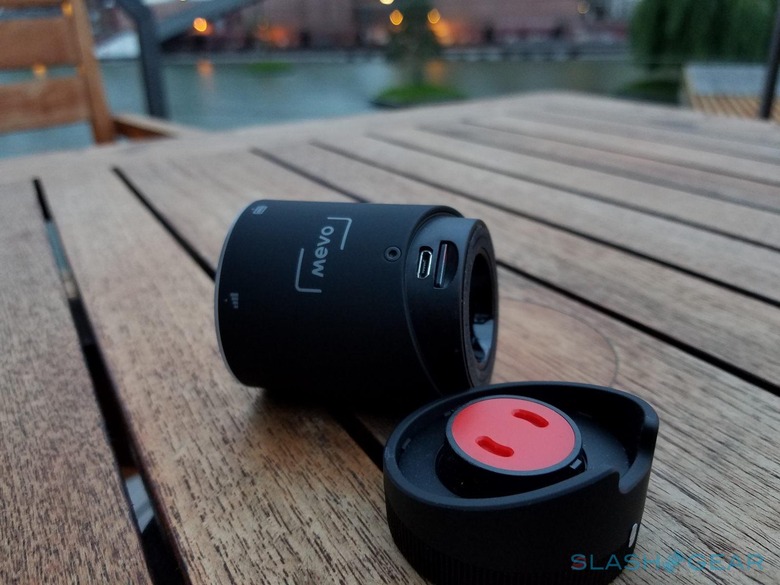
Other than the camera lens itself and the microphone grille at the front, the Mevo's soft rubber-coated body is unbroken by anything else, with the USB port for power conveniently hidden in the base mount instead. On the top, however, sits the one and only button to be found on the camera, used for both power and starting or stopping video capture. This is surrounded by a 24-color LED ring around the edge to indicate the camera's status.
Specs
Stripped of its design and software features, the Mevo is pretty much a glorified Internet camera, though you'd be hard-pressed to find one that has a 4K sensor and a decent, though not excellent, stereo microphone.
The Mevo boasts of an unnamed 12.4 megapixel Sony 4K image sensor, though there's a huge caveat to that we'll get to later, and an Ambarella A9SE processor. Despite the 360-degree shape, the lens doesn't really go that far, but does at least reach 150 degrees. The camera doesn't have speakers, because that's not really its purpose, but it does have dual analog MEMS mics to handle audio recording. Alternatively, you can also record audio via the paired iPhone.
The Mevo is a camera built for livestreaming so, naturally, it possesses connectivity. In particular, it sports a Wi-Fi connection that can be used either for an ad-hoc hotspot or for connecting to an existing Wi-Fi network. Creating its own Wi-Fi connection is necessary to connect to an iPhone to utilize the smartphone's LTE connection, in instances where there is no available network. But since the quality of streaming is dependent on the Internet connection, an independent Wi-Fi network is recommended for best results. That said, an Internet connection isn't required at all to use the Mevo, as it can easily save recorded footage directly to a microSD card. Mevo even ships with a 16 GB card out of the box.
Battery life will naturally be a concern with this livestreaming camera, and here the Mevo presents a mixed bag. The 1,200 mAh battery is paltry and can only power the Mevo by itself for a good hour, maybe even less. You'd be better off using the three-meter long USB cable to connect to a power source from the get go. Or perhaps Livestream would really want you to buy the $250 Mevo Boost accessory, which not only gives you an extended 5 to 10 hours of life with a 12,000 mAh battery, it also includes an Ethernet port for a faster, more stable Internet connection if available.
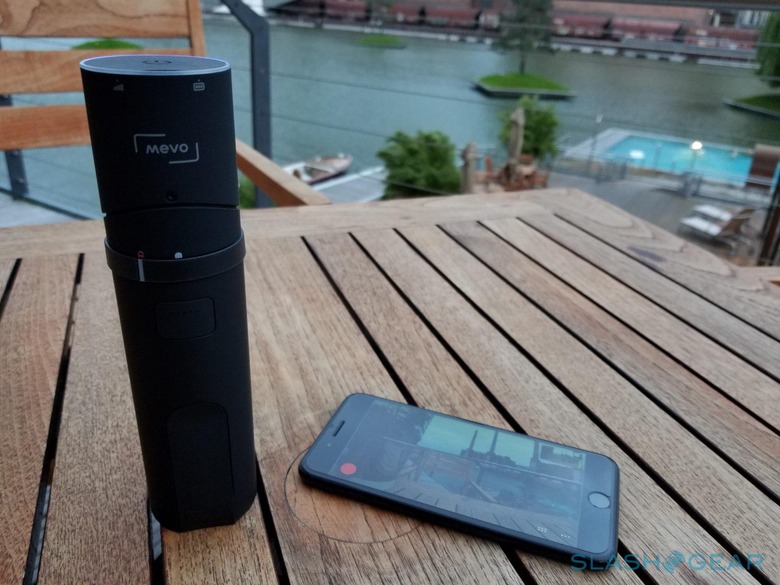
The magic trick: 4K but not quite
While on paper the Mevo is indeed capable of capturing video in full 4K, in reality, it only records and streams in 720p. Now, before you get disappointed, even enraged, at that revelation, first hear out how the Mevo actually works its magic.
While the camera does see in full 4K, that 4K is akin to a stage or a TV set, if you will. And like on any stage or set, the camera isn't always capturing the whole seen, but sometimes focuses only on a specific area or fraction of the set. In fact, there are sometimes multiple cameras that switch between views and angles. Mevo emulates that setup in an almost magical fashion, zooming in on faces, panning to new, interesting areas, and switching to where the action is. To be able to focus on sections and areas while still keeping a decent 720p quality, you'll need to start with an even higher resolution. Hence the 4K.
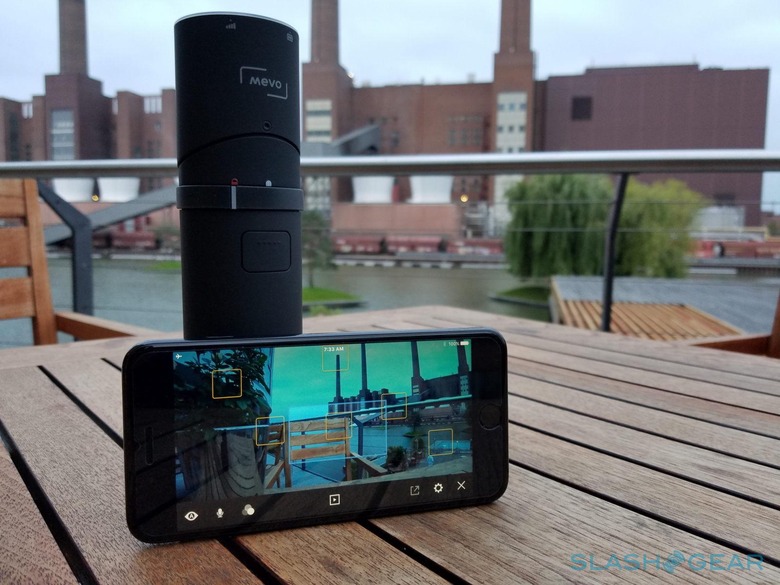
That zooming and panning and switching is where the Mevo's biggest strength lies. While you might be able to do the same with the basic camera app on your iPhone, that results in jumpy, jagged, and clearly unprofessional transitions. Mevo, on the other hand, puts you on the director's chair, from the comfort of your iPhone or iPad.
Yes, you still do all the gestures on your iPhone's screen, the transitions try to emulate the equivalent behavior from professional multi-camera setups. Pinching to zoom in or out, for example, has a smooth easing animation. Tapping on a spot, usually on a face or item, cuts to that area as if switching cameras. These subtle effects give an element of professionalism you wouldn't find on any smartphone camera app, livestreaming or otherwise.
Things become even more impressive when you let Mevo itself be the director. Yes, you can let the camera decide where to zoom, cut, or pan for you. You pre-select up to six focus points that Mevo will keep an eye on. Utilizing top-secret algorithms, Mevo can follow faces and movements to determine where the action, or talking, is happening. Doing an interview by yourself with no one to operate Mevo for you? Simply put the camera on autopilot and it will do its best to focus on who's talking, zoom in if needed or out to take in the whole scene.
Performance
Well, that's the theory and, impressive as it may sound, it has to match reality if it is be of any significance. And how does it fare in practice? Just as impressive as the theory! At least in majority of the use cases and situations.
As earlier mentioned, the Mevo doesn't really benefit from an optical image stabilizer nor does it have a super sophisticated image sensor. As such, it suffers the same faults as many smartphone cameras, but consequences aren't as severe. While smartphone cameras should ideally perform well in any scenario, most of the Mevo's use cases happen in well-lit environments, like broadcasting events, shows, or interviews. Exceptions would be concerts or events that are designed to be dimly lit as well as interviews in darker rooms. But even then, the Mevo's camera performance drops down to average rather than outright poor.
This fun ride on top of Modobags was documented by the Mevo:
This is how the Mevo performed well in the controlled environment of Audi's VR Experience demo room:
Audio recording might actually be a bigger concern, though in our time with the Mevo, the livestreaming mini studio handled everything we threw at it very well. There are some imperfections, however, and at times it ends up sounding a bit hollow. The biggest factor that will determine the mic's performance is distance. Even with stereo mics, the Mevo isn't all that powerful and quality degrades sharply after a few feet. The upside is that you can adjust gain settings via the iPhone app or, if judged to be better, even use the iPhone's mic as the audio source, which opens up the setup to more accessories, like a higher quality external microphone.
As for the "director" feature, it just works! In manual mode, the controls are responsive with no delay between gesture and corresponding camera transition, other than the appropriate animation, of course. The panning and cuts and zooming all happen smoothly, without awkward jumps and cuts, producing a video that seems to have gone through post-editing instead of being streamed live. The algorithm-based auto mode, however, is perhaps a bit too sensitive, and we ended up with some cuts in areas that the camera doesn't even need to look at. Fortunately, this is a software issue that can be refined and fixed later on with a firmware patch rather than hardware that has to be replaced at great cost. For perfect focus, cuts, and transitions, ideally you will want someone behind the smartphone to tap, pinch, and swipe as needed. But when you are a one-man or woman crew, then the Mevo at least offers you the next best thing an intelligent, competent, and maybe a wee too aggressive, director inside your iPhone.
Wrap-up
Although it was off to a slow start, livestreaming has quickly caught on to become a worldwide tech phenomenon, both as an entertainment medium as well as a tool for information dissemination. And while there are some cases that you will have to make do with what you have, that is, your smartphone, bigger events and stages call for better equipment. And that doesn't mean you need to burn through your budget for one.
The Mevo by Livestream camera sits between smartphones, even the higher end ones, and professional recording rigs, both in capabilities and in price, selling for $399 a pop. And while some smartphones, like the LG V20, for example, might arguably produce higher quality video and audio, that isn't exactly where the Mevo is at. What Livestream has done is to put a mini video editing studio in the palm of your hand, almost literally, offering real-time editing while streaming, putting you, or the Mevo, in the director's chair. And in that regard, the Mevo performs admirably and is unrivaled by anything in the market.
Vincent Nguyen contributed to this review.
